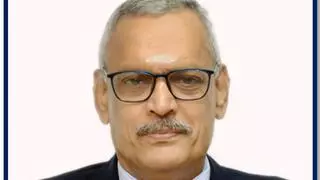What is the scale of Skillshare’s India business?
For Skillshare, India is a priority market. It’s the third largest market for us, outside the US and the UK. This year, we are actively doing investments in India across product, marketing and content. We have already started working with local Indian creators like Alicia Souza. In terms of marketing, we work with local influencers on YouTube to reach maximum people in tier 1 and tier 2 Indian cities.
In product, we accept UPI and Paytm as payment methods. We have also contextualised our pricing for India; our US pricing for a year-long subscription is upwards of $121-130, but in India, you can get the same for less than ₹1,800 which is around $20-25. We are actively thinking about how we make our value proposition better for the people in India. We have had more than 1,000 creators from India and more than 100,000 users who have watched over 32 million minutes of content on Skillshare.
What growth plans do you have for this year?
We have doubled down on our acquisition costs this year as compared to last year. This cost will be spread across strengthening our product like introducing more local payment options such as accepting Rupay cards, BNPL, etc., partnering with more local content creators, among other things. Our top five domains have been fine art, illustration, graphic design, animation, and film and video. So we look out for great artists in these domains and produce Skillshare originals with them.
What is your sense of competition in India and how does Skillshare stand out?
We do not like to comment on competitors but I personally feel we have a very different value proposition and offering. It’s not similar to like either Fontrow or other niche companies.
But for us, we sell a subscription and that gives access to all the classes rather than selling a particular course and so, that is something that that differentiates us. We don’t see them making inroads in India and we believe that we have the right content, marketing and product strategy to enter into the Indian market. We have seen great results in the last year and continue to see that this year.
Many major edtech players in India are opening offline centers. Even, upskilling companies have come up with ways of incorporating offline element to their online courses. Does Skillshare have any such plans of establishing offline presence?
We might to do quarterly or half-yearly events in certain cities like Delhi, Bengaluru and Mumbai. This will be a creative summit for people who want to make a career in that space. These summits could have two-hour sessions by few Skillshare instructors. However, that would be the most of it; we do not plan to open any offline centers.
We are also in talks with a couple of co-living and co-working spaces to do full day events which would include creative workshops. Here, the objective will be brand awareness and do not intend to convert people directly from there. If I do an offline class in Bengaluru, I will not be able to get popular creators but with the power of internet, anyone can learn from them.








Comments
Comments have to be in English, and in full sentences. They cannot be abusive or personal. Please abide by our community guidelines for posting your comments.
We have migrated to a new commenting platform. If you are already a registered user of TheHindu Businessline and logged in, you may continue to engage with our articles. If you do not have an account please register and login to post comments. Users can access their older comments by logging into their accounts on Vuukle.